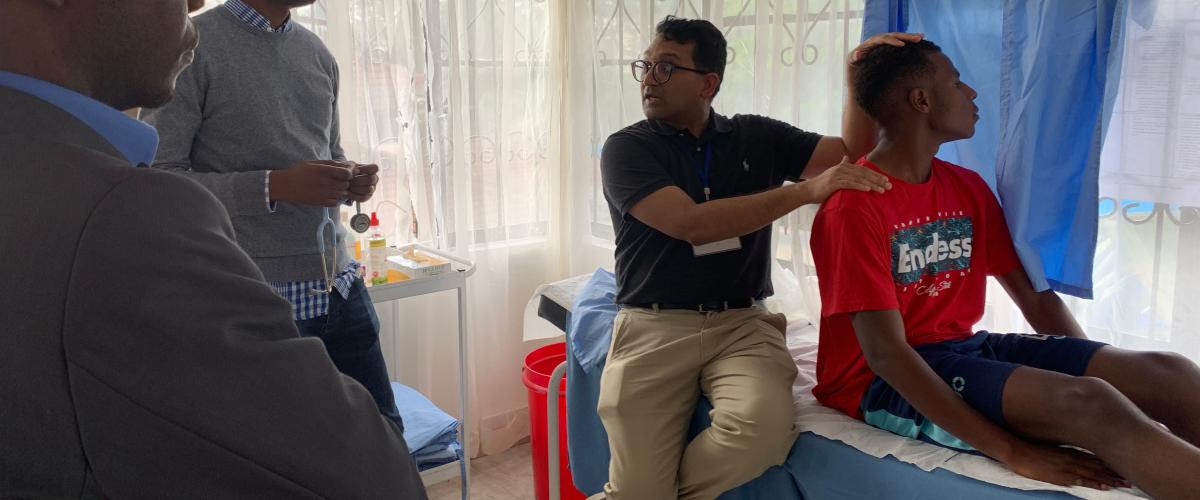CGHSR Facilitates Training in Africa to Standardize Care for U.S.-bound Refugees
The Center for Global Health and Social Responsibility recently facilitated back-to-back two-day trainings in East Africa that provided hands-on instruction for United Nations Migration Agency (IOM) physicians aimed at standardizing the continuum of care for U.S-bound refugees.
The trainings, part of CGHSR’s partnership with IOM, took place from April 26-27 in Nairobi and May 2-3 in Addis Ababa. The goal of the partnership between CGHSR and IOM is to ensure refugees immigrating to the United States receive high quality and standardized care as part of their resettlement process.
During the training, IOM “master trainers” from East Africa partnered with UMN faculty to train fellow IOM physicians using the IOM Physical Exam Guidelines, a set of exam standards developed by IOM, the University of Minnesota and the Centers for Disease Control and Prevention.
The exam guidelines were developed to ensure all U.S.-bound refugees receive the same standard of care, therefore improving health outcomes. The training provided an opportunity for both the trainers and the participating physicians to learn from one another.
“Since this is an international project, everyone has been trained in different schools and in different countries all over the world. The goal is to have physicians use the same standardized physical exam checklist to ensure optimal care,” said CGHSR IOM Project Coordinator Katie Conover.
Brett Hendel Paterson, MD, was the University of Minnesota faculty lead at the training. He emphasized the fact that the training was an opportunity for everyone to learn something, instructors included.
“While we refer to this as a ‘training’ for shorthand, our work here is much more about exchanging ideas, approaches, perspectives, and best practices,” said Hendel Paterson. “I feel that I learn as much from our IOM colleagues as I hope they learn from us.”
Providing high quality health care to refugees coming to the United States is an integral part of the resettlement process. Pre-travel exams can identify conditions unknown to patients that may need attention before departure. In some cases, this might be the first comprehensive medical evaluation refugees have experienced in quite some time.
The exam also helps to inform medical needs when refugees arrive in the United States. In particular, IOM physicians who have practiced in the U.S. can help tailor treatment plans based on resettlement guidelines in the country.
The CGHSR-IOM partnership is beneficial in that it engages physicians both in the United States and abroad. By working together, IOM physicians can impart knowledge specific to the country they work in.
“Minnesota has been one of the leading states in the U.S. to host newly arriving refugees. As a ‘receiving’ state, what we learn from our IOM colleagues gives us invaluable perspective on the journey refugees take from host-country internationally to eventual relocation to the U.S, and the resilience of refugee communities,” said Hendel Paterson.
The United Nations Refugee Agency states that 100 million people were forcibly displaced from their home country as of May 2022. The number represents an increase of more than 10 million people from the previous year, according to the Agency.
